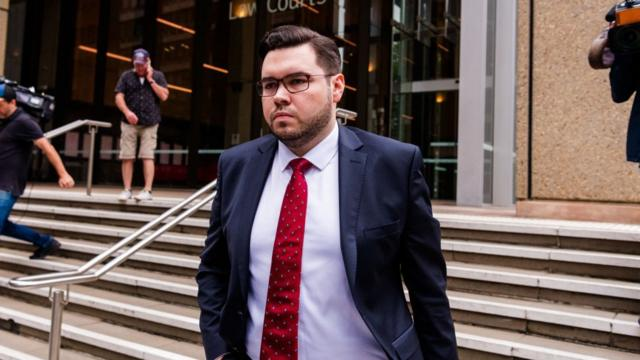Australia’s Leading TV Network Denies Allegations of Paying for Sex and Drugs to Secure Interview with Accused Rapist
Australia’s most-watched television network, Seven Network, has refuted accusations of resorting to payments for sex workers and illicit substances to secure an interview with an alleged rapist.
The allegations arose during a defamation case, with former Seven Network producer Taylor Auerbach presenting the claims.
Bruce Lehrmann is suing another network, Network 10, over what he asserts are false accusations of rape against a colleague.
While facing intense scrutiny over its exclusive interview with Mr. Lehrmann, Seven Network asserts that it conducted itself appropriately throughout the process.
A spokesperson for Seven Network stated, “Seven is appalled by the allegations made in recent days. We do not condone the behaviors described in these allegations. They do not reflect the culture of Seven.”
The allegations have prompted an eleventh-hour resumption of Mr. Lehrmann’s defamation case, described as akin to a quasi-criminal trial, just two days before the anticipated judgment.
Justice Michael Lee, upon reopening the defamation case, stated, “Let sunlight be the best disinfectant.”
In February 2021, Brittany Higgins alleged that she was raped by a colleague inside Canberra’s Parliament House in 2019, sparking nationwide protests condemning the treatment of women in politics.
Though Mr. Lehrmann was not named in the report by journalist Lisa Wilkinson for Network 10’s program “The Project,” he claims he was easily identifiable.
Subsequently, Mr. Lehrmann faced charges over the alleged rape, which were later dropped due to concerns for Ms. Higgins’ mental health.
Seven’s Spotlight program pursued Mr. Lehrmann for his side of the story, resulting in a two-part exclusive interview with the network. However, before its airing, Mr. Lehrmann initiated a defamation lawsuit against Network 10 and Ms. Wilkinson, alleging the assault never occurred and claiming they “utterly destroyed” his reputation.
Network 10, with Ms. Higgins as a witness, stated it would defend its report as substantially true.
Defamation cases in Australia operate with a lower standard of proof than criminal cases, often incorporating various evidence to assess witness credibility and character. Over five weeks, the trial heard from numerous witnesses, including Mr. Lehrmann and Ms. Higgins, along with analysis from a lip reader and testimonies from colleagues.

